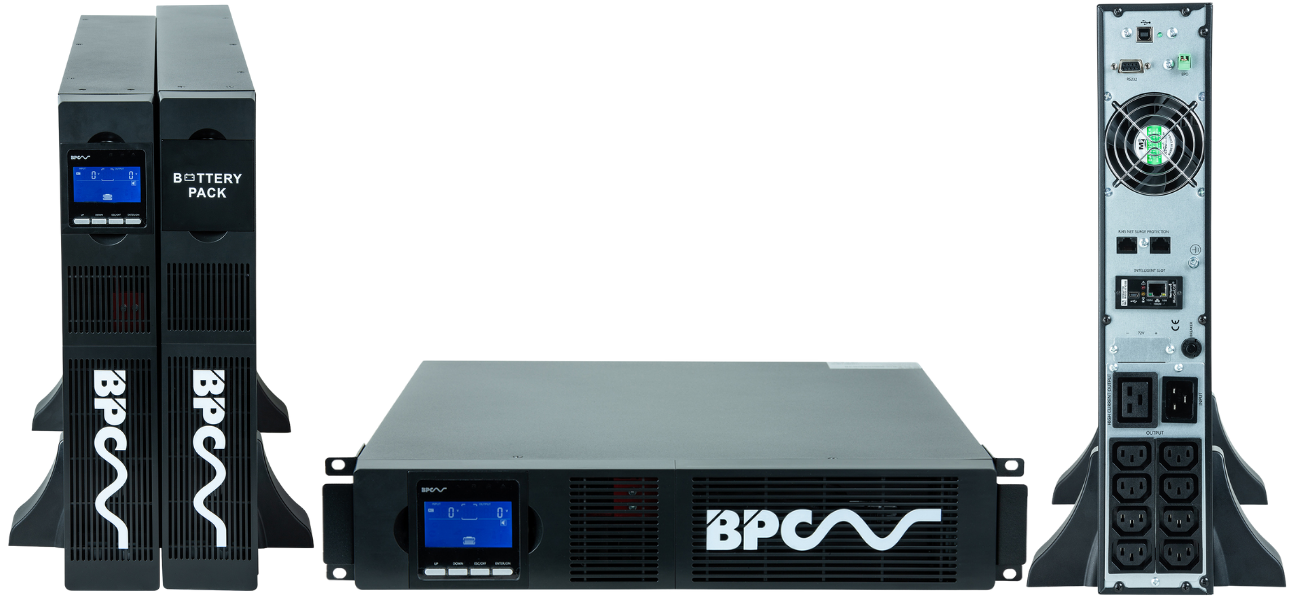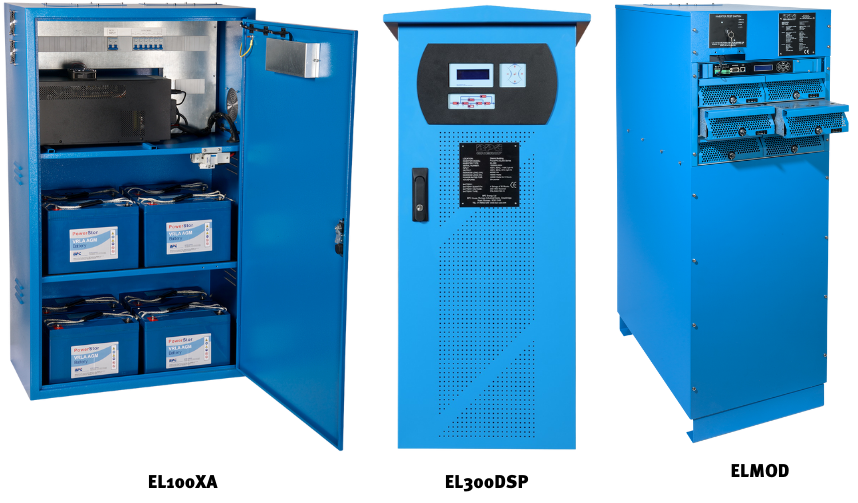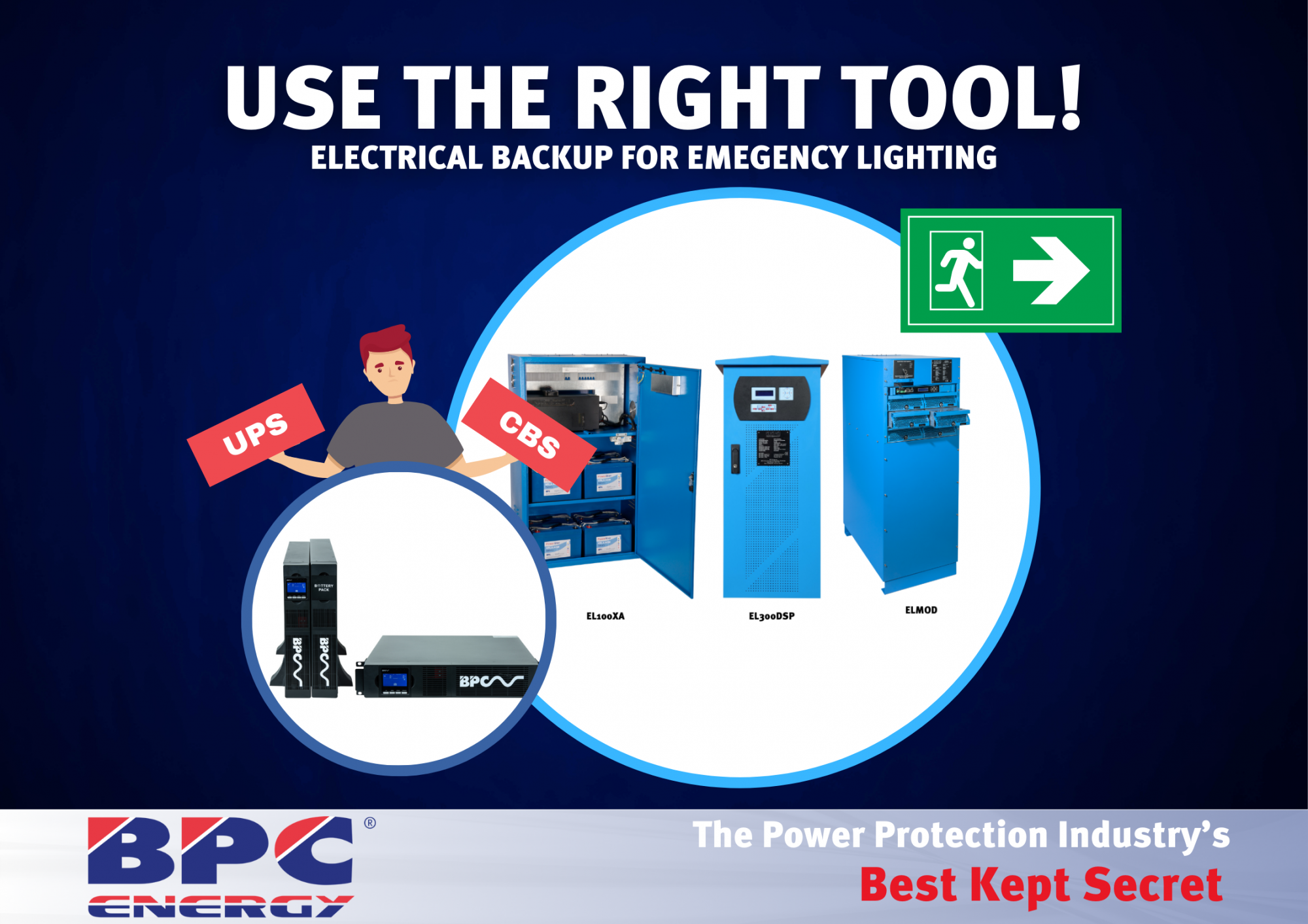When it comes to backup systems, there are two main players in the field: central battery systems and uninterruptible power supplies. While they may seem interchangeable, there are some crucial differences that can make all the difference when it comes to finding the right fit for your particular needs.
When it comes to power protection people tend to initially think of IT and Emergency Lighting as the most critical of loads...in the event of a mains supply failure the first generally has a financial impact, however, the second can directly impact lives. Hence, selecting the appropriate tool for power protection backup becomes crucial.
With backup systems, there are two main players in the field, the Uninterruptible Power Supply (UPS) and the Central Battery System (CBS). Although they might seem interchangeable at first glance, their regulatory requirements set them apart significantly. Understanding these disparities is vital for designing and installing the most suitable system.
It is a little-known, but important, fact that the regulations put the onus on manufacturers of CBUs to ensure the overall system that the CBU is installed in does meet the required standard for that installation. We don’t just supply a “box,” we have to make sure it is installed correctly.
In short, a UPS will not meet the requirements of an emergency lighting application.
In this blog, we highlight the salient differences between the two systems. It is not exhaustive but provides some facts that should be considered to assist in both designing and installing either a UPS (Uninterruptible Power Supply) or CBS (Central Battery System).
An Uninterruptible Power Supply system provides automated uninterrupted power to critical equipment and devices during mains supply anomalies, the most obvious of these being a total power outage. Typically, UPS units are used alongside standby generators to provide a comprehensive power protection system.
The duration of backup protection is simply a matter of sizing the associated batteries at the required load for the time that is required.
With UPS systems, businesses can have peace of mind knowing they can mitigate the negative impacts of power anomalies and safeguard against interruptions seamlessly, ensuring maintained continuous operations.
At BPC, we provide an extensive range of uninterruptible power supplies, ensuring a reliable and cost-effective way to power your business in the event of power failure. It is an effective way to provide continuous power, especially during prolonged power outages so that your devices remain powered and functional during power failure.
Our high-density, PowerGem Plus RT Single Phase UPS Series, which can be installed on the floor in tower form or rackmount cabinet configuration, is equipped with the latest DSP technology and highly efficient IGBT inverter technology. This ensures longer autonomy backup times.
However, while it is ideal for power backup protection, it is not suitable for powering emergency lighting systems as it cannot always handle the required power, contrary to popular beliefs about uninterruptible power supply systems.

Emergency lighting is indispensable for ensuring safe evacuation during emergencies. It must be provided in any building or facility to ensure swift and safe evacuation of people in the event of an emergency.
It is required by law, and it is a statutory requirement, that all systems comply with their very specific and relevant standards. In the case of emergency lighting systems, the base guidance document is BS5266, system standards BS EN 1838 and 50172, and product standards BS EN 60598, 62034 and 50171. These standards incorporate the requirements for the actual product itself and the required post-install maintenance and testing regime.
CBS serves as a critical component in complying with safety regulations. BPC’s CBS solutions include bespoke solutions that cater to diverse site-specific requirements, proposed topology, and the functioning philosophy of emergency lighting installations.
At BPC, we provide a range of Static Inverters systems designed to provide reliable backup power for emergency lighting systems, even in the event of power failure.
Our PowerPro EL range of Static Inverters equipped with dimming control and remote monitoring capabilities, ensure continuous illumination even during power failures, all while complying with British and European emergency lighting standards such as European BS EN50171, EN50272-2, BS 5266, and ICEL 1009 specifications.

At first glance, the power conversion technology, and the reliance on associated batteries to provide power in the event of a mains failure or emergency, in a CBU and UPS are very similar. However, it is the required application of the emergency lighting standards that wholly, and distinctly, differentiate the two solutions and negate the use of UPS units in emergency lighting applications.
Apart from the fact that CBS are significantly more resilient when fault conditions impact a building during an emergency, adherence to regulatory standards is also paramount, making CBS the preferred choice for emergency lighting applications.
At BPC, we offer comprehensive and impartial advice and support for both UPS and CBS systems. We like to go the extra mile by providing a tailored solution to help you with the right sizing, runtimes, and services required to meet the unique needs of your clients, whilst complying with all the relevant standards,
In conclusion, UPS systems can be installed in almost any commercial or residential building to provide backup power during an outage. They are highly beneficial because they provide backup power and prevent damage to sensitive electronics such as computers, servers, and phones due to sudden fluctuations in voltage or outages.
However, they do not supply continuous power like a central battery system (CBS). A CBS is ideal for high-load systems such as data centres or server rooms that always require uninterrupted power supply.
When deciding between installing a UPS system or CBS for your business’s power protection needs, consider the distinct requirements outlined by emergency lighting standards, and hopefully the guidance provided in this blog will help you make a more informed decision when it comes to using the right tool.
For expert advice and tailored solutions, trust BPC Energy to guide you through the process. Choose the right tool for reliable backup protection and ensure the safety and continuity of operations for your business.
If you want to learn more about how an Uninterruptible Power Supply can benefit your business, get in touch with our experts for personalized guidance and solutions.
OR, WHY NOT CHECK OUT OUR RANGE OF SINGLE PHASE UPS, THREE PHASE UPS and MODULAR UPS SOLUTIONS: BPC UPS Products
